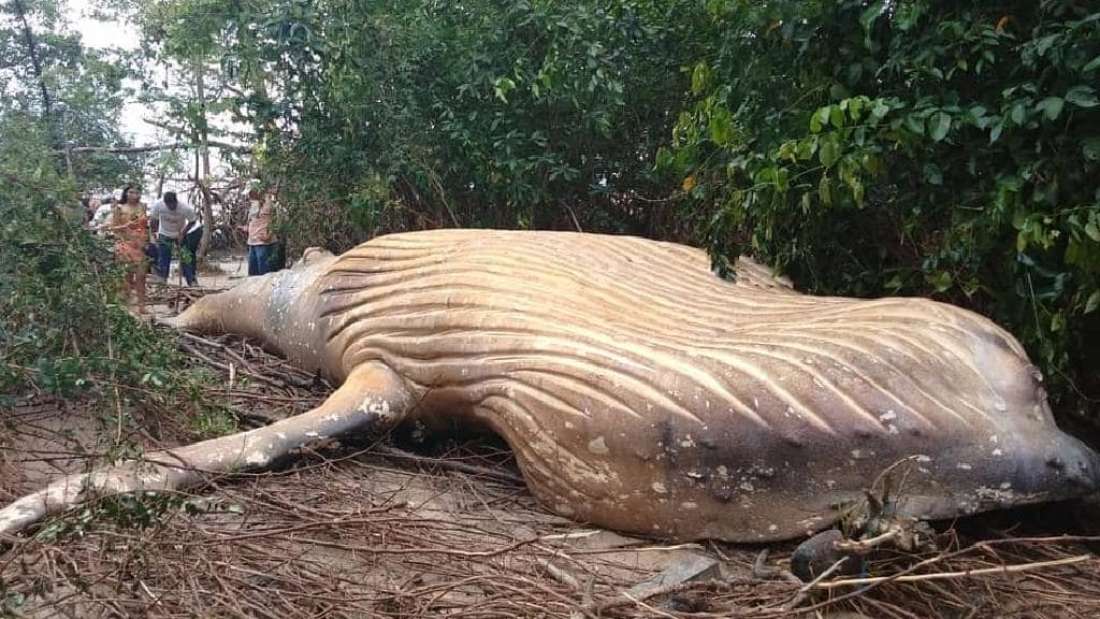Scientists are puzzled over the discovery of a 10-ton humpback whale in the Amazon jungle, about 50 feet from the ocean shores.
The jungles of South America are home to some of the richest biodiversity on earth; however, it's not typically associated with whales.
Against odds, an 8-meter (26-foot) whale has recently "beached" itself into the Amazon rainforest in Brazil, leaving wildlife experts scratching their heads.
The whale, believed to be one year old, was found dead 15 meters (49 feet) from the river beach on Marajó Island.
According to wildlife experts, it's likely the whale washed into the river mouth of the Amazon and was dumped on land as the tides pulled back.
Renata Emin, a marine biologist from the Bicho D'agua Institute, said in a statement:
"We're still not sure how it landed here, but we're guessing that the creature was floating close to the shore and the tide, which has been pretty considerable over the past few days, picked it up and threw it inland, into the mangrove."
"Along with this astonishing feat, we are baffled as to what a humpback whale is doing on the north coast of Brazil [at this time of the year] because this is a very unusual occurrence."
Humpback whales are baleen whale species and can grow up to 16 meters (52 feet) in length. Though their population appears to be on the rise, according to the IUCN Red Lists, this species is still endangered.
A major contributor to the decline is its distinct and fragmented populations. Some scientists even argue that humpback whales in the oceans of the North Pacific, North Atlantic, and Southern Hemisphere are dissimilar and should be recognized as separate subspecies.
Humpback whales have a vast range spanning across most world's oceans, including the opening to the Amazon basin, where this whale was found.
They're known to migrate tens of thousands of kilometers every year, feeding in polar seas before moving to warmer waters to breed and give birth.
So, this young individual probably became separated from its pod during migration and eventually died as a result of stress, some studies suggest.
Marine mammals can become stranded for different reasons, from environmental causes, such as rough weather, to sickness.
Another theory argues that solar storms, bright bursts of electromagnetic energy from the Sun, can also mess with the animals' internal compasses.
Sonar storms can distress some whale species, causing them to change their diving patterns, according to a recent study.
This results in the build-up of nitrogen bubbles in their blood, a condition known as decompression sickness or the bends. The condition can cause hemorrhaging and damage to whales' vital organs.



